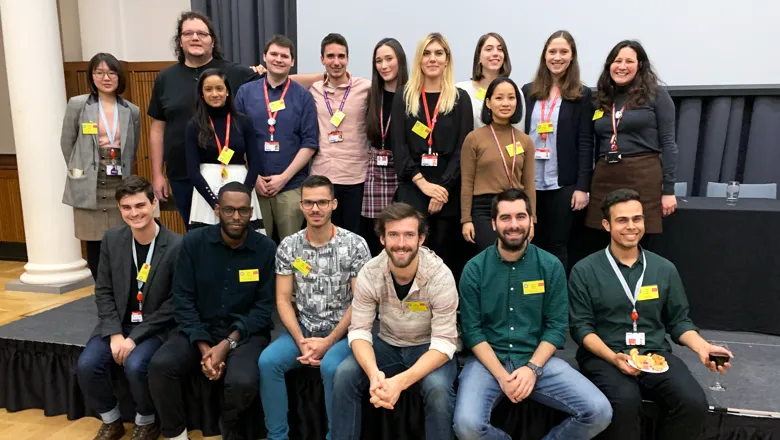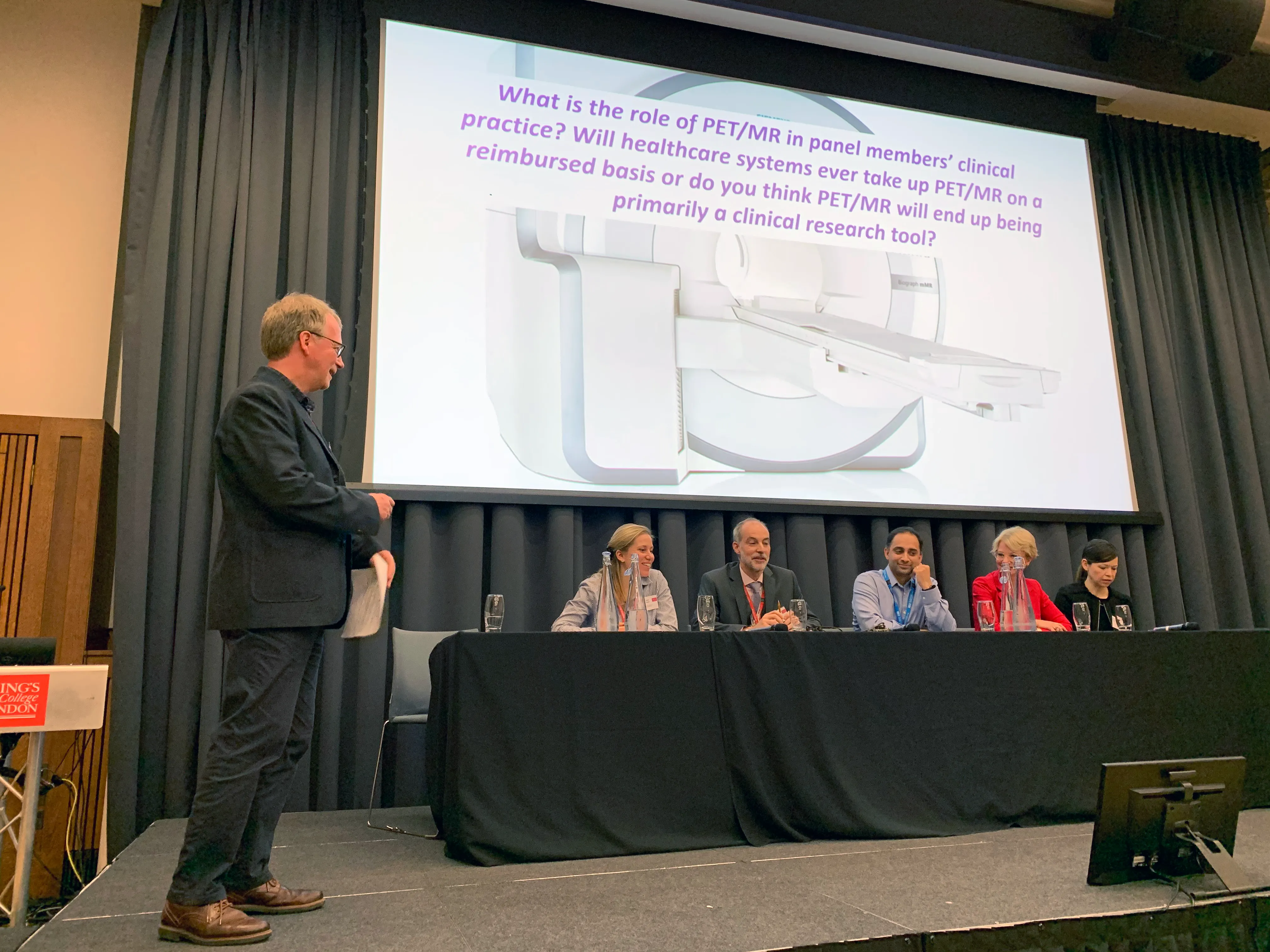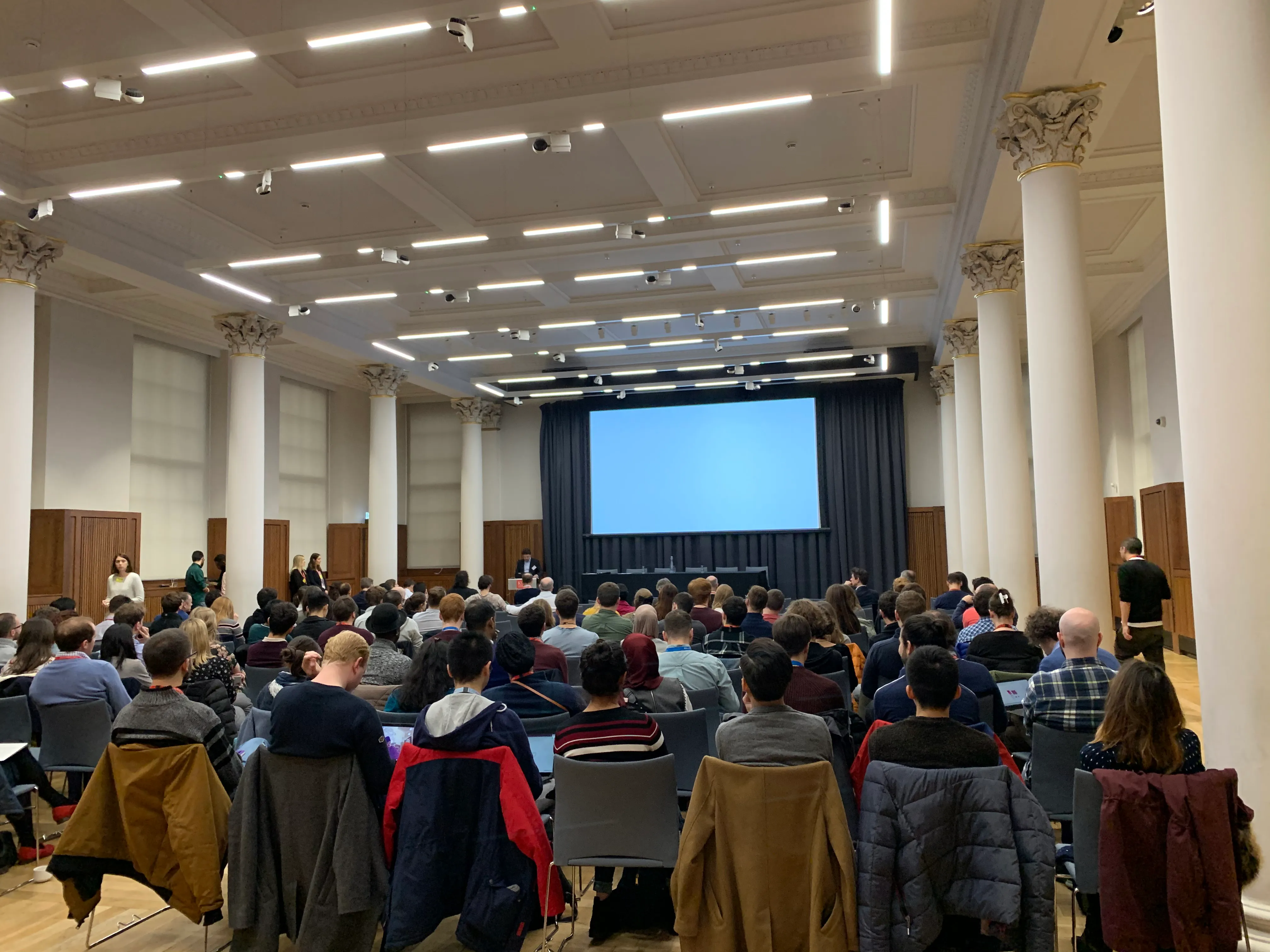“They put on an incredibly varied programme of student and plenary talks, two student poster sessions and a really successful and entertaining panel discussion, a first for a PGR symposium in our School."
Dr Michelle Ma
04 December 2019
2019 Postgraduate Research Symposium showcased student research excellence
Postgraduate research at the School was on show during the full-day symposium

Postgraduate research students from the School of Biomedical Engineering & Imaging Sciences showcased their research excellence at the annual Postgraduate Research Symposium at Strand’s Great Hall last week Monday.
Over 60 students presented posters and gave oral presentations about their research. Two poster awards were received by Daniel O’Hare (Non-invasive measurement of atrial conduction velocity during exercise) and Elsa-Marie Otoo (VR model viewer to visualise and assemble medical images and segmented models) as well as one oral presentation award to Tianrui Zhao (Towards a photoacoustic Endo-Microscopy Imaging Probe).
Dr Michelle Ma, the School's PGR coordinator and Senior Lecturer in Imaging Chemistry said the symposium is an important event in the School calendar because it showcases the breadth of postgraduate research as well as the exceptional talent of the School’s postgraduate research students.
“I was really impressed with the breadth of talks and posters this year – there was biology, chemistry, maths, physics, engineering, AI, cardiovascular, cancer and perinatal imaging research. For all of this postgraduate research to happen within a single School is unique,” she said.
Dr Ma said this year’s student organising committee demonstrated terrific leadership, drive, enthusiasm and teamwork.
Two keynote speakers presented at the event, including Professor Ronald Summers from Bethesda NIH Clinical Centre in Maryland, USA who gave a very interesting and personal insight into the high topical area of Artificial Intelligence in Radiology.
Dr Tracy Underwood, from the University of Manchester gave a fascinating talk on her experience of Proton Radiobiology and Imaging.
A new addition to this year’s programme was the inclusion of a Panel Discussion, on the topic of “Multi-modality Imaging – Is Two Better than One?” which featured a range of clinicians and academics to debate this area, each providing their personal experience and insight.
The panel was chaired by Professor Paul Marsden with Dr Isabel Dregely, Professor Alexander Hammers, Dr Malene Fischer, Dr Sohaib Nazir and Dr Eliana Reyes.
Lead PGR Coordinator Andrew Reader said the success of the symposium highlights the strength of the School’s research students and resources.
“There are currently around 160 registered PGR students in the School of Biomedical Engineering & Imaging Sciences, implying that on average around 40 postgraduate research students join each year,” he said.
Mr Reader said the school also now has two centres of doctoral training (CDTs), one the recently renewed EPSRC CDT in Smart Medical Imaging, and the other a new CDT in Surgical and Interventional Engineering.
“We have at least 20 companies contributing to our CDTs, which demonstrates how recognised our PGR research programmes are by industry,” he said adding five postgraduate research students recently qualified for funding from the EPSRC National Productivity Investment Fund (NPIF) for industrial placements.


